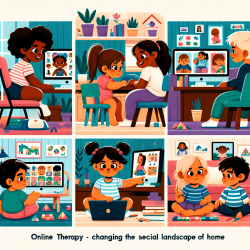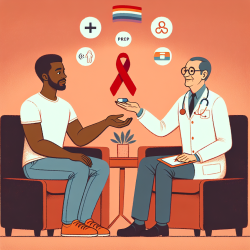Introduction
In the realm of speech-language pathology, making informed, data-driven decisions is crucial for achieving the best outcomes for children. At TinyEYE, we are committed to utilizing evidence-based practices to deliver high-quality online therapy services to schools. This blog will explore how data-driven decisions can enhance speech therapy outcomes for children, emphasizing the importance of measurable results and continuous improvement.
The Importance of Data in Speech Therapy
Data collection and analysis are fundamental components of effective speech therapy. By systematically gathering and analyzing data, therapists can:
- Identify specific speech and language needs of each child
- Develop personalized therapy plans
- Track progress over time
- Adjust interventions based on measurable outcomes
Research has consistently shown that data-driven approaches lead to more effective interventions and better long-term outcomes for children (McLeod & Baker, 2017).
How TinyEYE Utilizes Data-Driven Decisions
At TinyEYE, we integrate data-driven practices into every aspect of our online therapy services. Here’s how:
- Initial Assessments: We begin with comprehensive assessments to gather baseline data on each child's speech and language abilities.
- Personalized Therapy Plans: Based on assessment data, we create individualized therapy plans tailored to each child's unique needs.
- Progress Monitoring: Our therapists regularly collect data during sessions to monitor each child's progress and make necessary adjustments.
- Outcome Measurement: We use standardized tools to measure therapy outcomes, ensuring that our interventions are effective.
Case Study: Improved Outcomes Through Data-Driven Therapy
Consider the case of Emily, a 7-year-old with articulation difficulties. Through initial assessments, our therapists identified specific sounds she struggled with. Using this data, they developed a targeted therapy plan that included exercises focused on these sounds. Over several months, regular progress monitoring showed significant improvements in Emily's articulation. By the end of the school year, Emily's speech was clear and intelligible, and her confidence had grown significantly.
The Role of Technology in Data-Driven Speech Therapy
Technology plays a pivotal role in facilitating data-driven speech therapy. TinyEYE's online platform offers several advantages:
- Ease of Data Collection: Our platform allows therapists to seamlessly collect and record data during each session.
- Real-Time Analytics: Therapists can access real-time analytics to track progress and make data-informed decisions promptly.
- Parent and Teacher Involvement: Data can be easily shared with parents and teachers, fostering a collaborative approach to the child's therapy.
Conclusion
Data-driven decisions are at the heart of effective speech therapy. By leveraging data, TinyEYE ensures that each child receives personalized, evidence-based interventions that lead to meaningful improvements. Our commitment to data-driven practices underscores our mission to create great outcomes for children, one session at a time.
To learn more about how TinyEYE's online therapy services can benefit your school, visit our website or contact us today.










